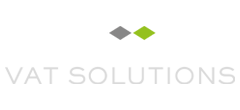France – VAT and Services in Accordance with the General B2B Rule

France – VAT and services in accordance with the General B2B Rule
Classification of services, place of taxation, implications for your purchase and sales invoices—discover the VAT regime for services under the general B2B rule.
Services provided under the general rule
Place of VAT taxation for services falling under the general rule
According to Article 44 of Directive 2006/112/EC, transposed into Article 259 of the French General Tax Code (CGI), services provided under the general rule to a taxable person acting as such are subject to VAT in the country where the taxable person has established their economic activity’s main office.
However, if the services are provided to a VAT-fixed establishment of the taxable person in a country other than the main office’s location, the service is taxable at the place of the fixed establishment.
Services covered
Some examples of services falling under the general rule:
– Advertising services
– Rental of tangible movable property other than means of transport
– Services provided by consultants, engineers, and design offices in all fields, including the organization of research and development
– Services provided by chartered accountants
– Transfer and licensing of copyrights, patents, license rights, trademarks, and other similar rights
– Transportation of goods, whether international, intra-community, or domestic, as well as ancillary services (such as loading, unloading, handling, and similar activities)
– Rental of means of transport not exceeding 30 days (90 days for maritime means of transport)
– Access to online events (starting January 1, 2025)
Conversely, the following services are not subject to the general rule (Articles 47 and following of Directive 2006/112/EC and Article 259 A of the French General Tax Code):
– Short-term rentals of means of transport
– Services related to real estate
– Passenger transportation services
– Services provided to a non-taxable person in connection with cultural, artistic, sporting, scientific, educational, entertainment, or similar activities, such as fairs and exhibitions, including services provided by organizers of such events and ancillary services
– Services granting access to cultural, artistic, sporting, scientific, educational, entertainment, or similar events, such as fairs and exhibitions, as well as services ancillary to such events
– Services provided by travel agencies under the conditions specified in Article 257ter III of the French General Tax Code.
Application of the general rule to purchases
The service provider is established in France
When a French company purchases a service falling under the general rule from a French service provider, the transaction is territorially taxable in France, where the French client has established the headquarters of its economic activity. Unless a VAT exemption applies, French VAT is charged on the purchase invoice. This VAT is deductible for the French company, provided the conditions for the right to deduction are met.
The service provider is established outside France
When a French company purchases a service falling under the general rule from a European or non-European service provider, the transaction is territorially taxable in France, where the French client has established the headquarters of its economic activity.
In this case, since the service provider is not established in France, the invoice is issued without VAT. It is the responsibility of the French company to self-assess the VAT in France by reporting the transaction in box A3 and the corresponding VAT in the deductible section of the French VAT return (provided the conditions for the right to deduction are met).
Indeed, Article 196 of Directive 2006/112/EC, transposed into Article 283-2 of the French General Tax Code (CGI), specifies that if the service provider is not established in France, the VAT is payable by the client.
Application of the general rule to sales
The Client’s economic activity headquarters is in France
When a French company invoices a service falling under the general rule to a business whose economic activity headquarters is located in France, the transaction is territorially taxable in France. Unless a VAT exemption applies, French VAT is charged on the sales invoice. The transaction must be reported in box A1 of the French VAT return by the service provider.
The client’s economic activity headquarters is in the European Union or outside the European Union
When a French company invoices a service under the general rule to a taxable business whose economic activity headquarters is located in the European Union or outside the European Union, the transaction is taxable in the country of the recipient (in the EU or outside the EU). No VAT is applied to the sales invoice for two reasons: first, because the place of taxation is abroad, and second, in the case of a client established within the EU, Article 196 of Directive 2006/112/EC specifies that if the service provider is not established in the country where the VAT is due, the VAT is payable by the client. The EU-based client will settle it via the reverse charge mechanism.
For clients established outside the EU, the transaction falls outside the scope of EU VAT; however, caution is advised as certain services may require local VAT registration for the service provider, depending on the country.
The transaction must be reported in box E2 of the French VAT return.
EU Client:
Attention – When the recipient of services is headquartered in the European Union, it is essential to verify the client’s VAT number through the VIES platform, ensuring that the client’s name and address match. The transaction must be reported in a European Services Declaration (DES) unless it qualifies for an exemption in the client’s country.
Non-EU Client:
Attention – When the recipient of services is headquartered outside the European Union, the following must be obtained:
– A certificate issued by the recipient’s tax authorities confirming that they engage in economic activities qualifying them for VAT reimbursement under Directive 86/560/EEC, or
– The recipient’s VAT number (or similar), or any other evidence proving that the recipient is a taxable person.
It is also necessary to conduct reasonable checks to ensure the accuracy of the information provided by the recipient, using standard commercial security procedures such as identity or payment verification.
Specific case of services performed outside the European Union
The following services are normally taxable in France when the recipient is established in France:
– Transportation of goods and related commissions
– Escorting of means of transport for the purpose of goods transportation
– Rental of vehicles and equipment for goods transportation
– Guarding, warehousing, handling, loading, and unloading of goods
Toutefois, lorsqu’elles sont effectivement utilisées ou exploitées hors Union Européenne, il est admis que ces prestations ne soient pas soumises à la TVA (article 59 bis de la directive 2006/112/CE commenté par la Doctrine administrative BOI-TVA-CHAMP-20-50-20 Nr 170 et suivants).
Le critère déterminant sera alors la distance parcourue hors de l’Union européenne pour les trois premières prestations.
Il s’agira du lieu d’exécution matériel pour la quatrième prestation (Lieu du gardiennage ou de manutention).
Discover our services
VAT Solutions offers a range of services to assist you with your VAT-related challenges in France and internationally:
– Diagnostic of your VAT organization, your flows, and the methods for preserving proof of exempt operations, as well as assessing the impact of new VAT rules;
– Confirmation of the VAT treatment of your flows;
– Coaching/training;
– Management of VAT obligations in Luxembourg and abroad: assistance, preparation, and submission of VAT identification requests and VAT returns.
Contact us
Phone number: + 33 6 12 37 32 22
Email: info.fr@vat-solutions.com
For more content, check out our LinkedIn page here.

By agreeing, we’ll assume that you are satisfied with our use of cookies on your device.
If you continue navigating, we’ll assume that you are happy to receive all cookies from our website.
Otherwise, you can change your settings at any time.
En acceptant, nous supposerons que vous êtes satisfait de notre utilisation des cookies.
Si vous continuez à naviguer, nous supposerons que vous acceptez de recevoir l’ensemble des cookies de notre site web.
Sinon, vous pouvez modifier vos paramètres à tout moment.

